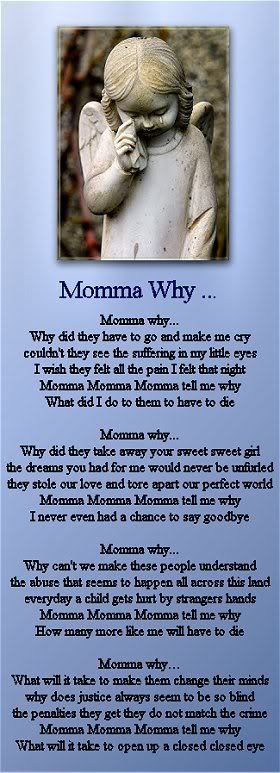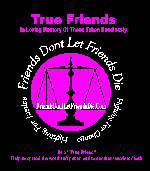
Welcome To Our Site |
FRIENDS DON'T LET FRIENDS DIE.COM |
|
|
Friends Dont Let Friends Die is a 501(c)(3) Non-profit organization. |
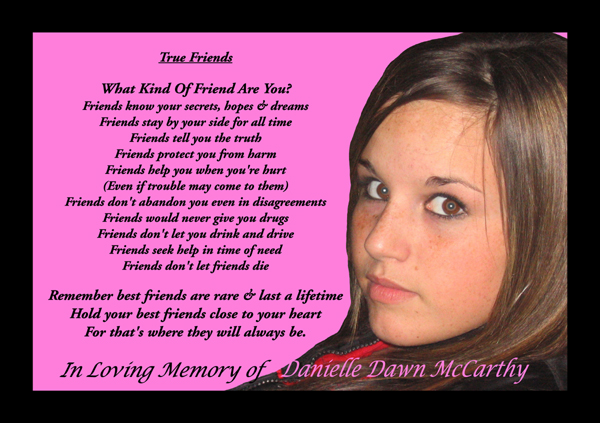
Thursday March 05, 2026
Participate in our forum
Ask The White House
State and Federal Drug Laws
Regarding Death or Serious Injury
Drug Enforcement Administration(DEA)
Drug Trafficking Penalties
Patchwork of Penalties
Find your State's Statutes
Contact your Congressman
Senator or Governor
Crime Victims
Bill of Rights and Compensation
About This Site
State News
Chat
Our Children
Click on a name below to see their page
Danielle McCarthy
Washington
Christi Nowak
Georgia
Anke Furber
Georgia
Levi Wren
Washington
Ephrain Schultz
New York
Mark R Ellis
Rhode Island
Sean P. Efford
New Mexico
Caitlyn Brady
New Hampshire
Katty McGuire Andrea
Washington
JP Faulk
Florida
Michael Miller
Massachusetts
Chuck Tabaka
Wisconsin
Miranda Daly
California
Jamie Leavitt
Washington
Kaylin Marie Mathews
California
RJ Davis
Alabama
Billy Grandchamp
Rhode Island
Nicholas Werhofnik
Georgia
Rebecca Marks
New York
Dustin Kueter
South Dakota
Chase Denver Julian
Louisiana
Katelynn Porter
Ontario,Canada
Tony Trujillo
Colorado
Billy Joe Towle Jr.
Michigan
Kelley Wilson
Alabama
Rhiannon Fraser
Florida
Vivianna Satterfield
New Mexico
Kelli Laine Lewis
South Carolina
Taylor Smith
Georgia
 Danielle cherished family, friends and life. She had her whole life planned
out; her husband, number of kids, two dogs and would be a dermatologist, a career
where she could help others but have time for her family.
Danielle cherished family, friends and life. She had her whole life planned
out; her husband, number of kids, two dogs and would be a dermatologist, a career
where she could help others but have time for her family. 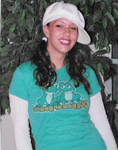 Christi had just enrolled in college. She just began taking First Baptist Church
shuttles downtown every Thursday to befriend the homeless. Just chit chatting
with them and letting them know they had a friend. In her journals, she was
determined to turn her life around and she started by helping others. She volunteered
often for the M.U.S.T. Ministries to help set up their clothing shop for the
homeless and the children's center. She helped cooked their meals. She helped
do their laundry. She wanted to go into a field helping others. She would have
changed at least one person's life, for the better, when they thought there
was no more hope. She didn't show up last Thursday. She died.
Christi had just enrolled in college. She just began taking First Baptist Church
shuttles downtown every Thursday to befriend the homeless. Just chit chatting
with them and letting them know they had a friend. In her journals, she was
determined to turn her life around and she started by helping others. She volunteered
often for the M.U.S.T. Ministries to help set up their clothing shop for the
homeless and the children's center. She helped cooked their meals. She helped
do their laundry. She wanted to go into a field helping others. She would have
changed at least one person's life, for the better, when they thought there
was no more hope. She didn't show up last Thursday. She died.  In the months before she was killed, 21-year-old Anke Furber had been acting
scared and she seemed to know she was in danger. Several days after Furber's
charred remains were discovered in a small vineyard in Norcross, Anke's mom,
Ria, found a note in Anke's desk at home in Marietta. In it, Anke seemed to
foreshadow her own death. She wrote, "My parents would surely grieve the loss
of their wonderful daughter whose craziness would soon lead to her slaughter".
Ria isnt sure exactly when the note was written, but believes it was written
in a close time frame to the actual murder.
In the months before she was killed, 21-year-old Anke Furber had been acting
scared and she seemed to know she was in danger. Several days after Furber's
charred remains were discovered in a small vineyard in Norcross, Anke's mom,
Ria, found a note in Anke's desk at home in Marietta. In it, Anke seemed to
foreshadow her own death. She wrote, "My parents would surely grieve the loss
of their wonderful daughter whose craziness would soon lead to her slaughter".
Ria isnt sure exactly when the note was written, but believes it was written
in a close time frame to the actual murder.  At 22 years old, Levi had goals and ambitions of being a business owner, a husband
and a father. He loved his family and friends with everything in him and would
do anything for you. His shyness and manners we're a shining attribute to who
he was. Unfortunately, Levi befriended someone who for nearly three years took
advantage of his kindness and when asked to leave his home, he killed him. If
he would have just walked out the door as asked, Levi would still be here today.
We'll never know all the wonderful things that Levi would have accomplished,
but we know he was a "Friend" till the end.
At 22 years old, Levi had goals and ambitions of being a business owner, a husband
and a father. He loved his family and friends with everything in him and would
do anything for you. His shyness and manners we're a shining attribute to who
he was. Unfortunately, Levi befriended someone who for nearly three years took
advantage of his kindness and when asked to leave his home, he killed him. If
he would have just walked out the door as asked, Levi would still be here today.
We'll never know all the wonderful things that Levi would have accomplished,
but we know he was a "Friend" till the end.  Ephraim was 21 yrs old when he prematurely transitioned to the other side. He
was a very warm hearted young man. And was always available to help friends
and family. As his cousin Ben said about him: "You can lay a 1,000. on the table
and know completely that Ephraim would have never taken it". He spent most of
his days at Antique World in Clarence , NY which was owned and operated by his
Uncle. That was my sons world. A world he will no longer be able to participate
in. He is sorely missed by his family and friends.
Ephraim was 21 yrs old when he prematurely transitioned to the other side. He
was a very warm hearted young man. And was always available to help friends
and family. As his cousin Ben said about him: "You can lay a 1,000. on the table
and know completely that Ephraim would have never taken it". He spent most of
his days at Antique World in Clarence , NY which was owned and operated by his
Uncle. That was my sons world. A world he will no longer be able to participate
in. He is sorely missed by his family and friends.  Mark suffered a brain injury at the age of 19 the night of a high school prom.
Mark died at the age of 25. Life was hard for Mark, he lived an aphasic life.
Mark struggled to relearn his alphabet and to speak again. Neuro rehab, drug
rehab, jails, institutions and death. Mark was disabled and a fighter all at
the same time. College, heavy equipment operator, volunteering were all part
of these six years. Mark loved kids and wished he had one. Due to the selfish
reasoning of his so called friends, Mark will never be able to achieve his dreams
that he fought so hard for. Mark's struggle is over !! PEACE..........
Mark suffered a brain injury at the age of 19 the night of a high school prom.
Mark died at the age of 25. Life was hard for Mark, he lived an aphasic life.
Mark struggled to relearn his alphabet and to speak again. Neuro rehab, drug
rehab, jails, institutions and death. Mark was disabled and a fighter all at
the same time. College, heavy equipment operator, volunteering were all part
of these six years. Mark loved kids and wished he had one. Due to the selfish
reasoning of his so called friends, Mark will never be able to achieve his dreams
that he fought so hard for. Mark's struggle is over !! PEACE..........  His friends describe him as a kind, warm hearted, full of energy, always smiling,
and a very silly young man. They also said that whenever Sean walked into a
room that he had the ability lighting up the room because he was full of life
and energy! He loved his dad, his mom, and his sister very much. He had a very
special bond with his great grandma Efford and his great aunt Charlene whom
also up in heaven with him. A warm hug from Sean was just another way that he
showed his affection to his family and friends
His friends describe him as a kind, warm hearted, full of energy, always smiling,
and a very silly young man. They also said that whenever Sean walked into a
room that he had the ability lighting up the room because he was full of life
and energy! He loved his dad, his mom, and his sister very much. He had a very
special bond with his great grandma Efford and his great aunt Charlene whom
also up in heaven with him. A warm hug from Sean was just another way that he
showed his affection to his family and friends  When Cayte was in the middle school she was on the track team, she was a cheerleader
for the Nor-Roc Vikings, she was on a soccer team, and she loved attending the
dances at the Sad Cafe. When she went to high school, all of those activities
stopped. The sad reason was because she was too old. All the kids have, once
they reach high school, are the woods and the homes of friends when the parents
are at work. If she had activities to do after school when she went to high
school, maybe this wouldn't have happened.
When Cayte was in the middle school she was on the track team, she was a cheerleader
for the Nor-Roc Vikings, she was on a soccer team, and she loved attending the
dances at the Sad Cafe. When she went to high school, all of those activities
stopped. The sad reason was because she was too old. All the kids have, once
they reach high school, are the woods and the homes of friends when the parents
are at work. If she had activities to do after school when she went to high
school, maybe this wouldn't have happened.  From her birth to her passing Katty touched so many lives. Not only did her
family have the joy of watching her grow from a 6 pound baby girl to a beautiful
young woman, but so many others did as well. The lives she touched are too many
to fathom. Her beauty and grace preceded her where ever she went. Her heart
was made of fine gold and she cared for others always before herself. She was
not just special to all of us but to the Lord who saw fit to call her home at
such a young age. Her mansion was ready! When we think of Katty now we all can
be at peace because we know she is with her Lord, never to face this harsh world
we live in day to day. She is with us always when we remember her smile, her
touch, and her kind words. We all had the pleasure of being touched by an ANGEL!
From her birth to her passing Katty touched so many lives. Not only did her
family have the joy of watching her grow from a 6 pound baby girl to a beautiful
young woman, but so many others did as well. The lives she touched are too many
to fathom. Her beauty and grace preceded her where ever she went. Her heart
was made of fine gold and she cared for others always before herself. She was
not just special to all of us but to the Lord who saw fit to call her home at
such a young age. Her mansion was ready! When we think of Katty now we all can
be at peace because we know she is with her Lord, never to face this harsh world
we live in day to day. She is with us always when we remember her smile, her
touch, and her kind words. We all had the pleasure of being touched by an ANGEL! We want our son's name to be Remembered and to bring hope and joy out of something
that has been the darkest and heartbreaking days of our families life. JP was
very out spoken and we have decided to be that way on this site and to be his
voice about the drug companies and the public official's that sit back and do
nothing. If we could save one person from what our family had to go Through
and is still going Through, it would be all worth it We will not stop until
the truth gets out. We want his memory to live on.
We want our son's name to be Remembered and to bring hope and joy out of something
that has been the darkest and heartbreaking days of our families life. JP was
very out spoken and we have decided to be that way on this site and to be his
voice about the drug companies and the public official's that sit back and do
nothing. If we could save one person from what our family had to go Through
and is still going Through, it would be all worth it We will not stop until
the truth gets out. We want his memory to live on.  Time has gone by so quickly and it seems like we haven't seen your face in forever.
Our hearts are broken, our tears flow so freely and our souls feel empty. Michael,
you left us with so many happy memories but the memories can never take your
place. We know you and your uncle Sam are saving a place for those who cherished
you the most.
Time has gone by so quickly and it seems like we haven't seen your face in forever.
Our hearts are broken, our tears flow so freely and our souls feel empty. Michael,
you left us with so many happy memories but the memories can never take your
place. We know you and your uncle Sam are saving a place for those who cherished
you the most.  Two weeks before he died, Chuck called me on the phone. He was excited to tell
me he was joining the National Guard. He had begun to think about being a History
Teacher. He planned to attend school after basic training. He also mentioned
a new girlfriend. He was pretty crazy about her but wanted to give things a
little more time before making her "meet the parents". Still, we made plans
to meet for lunch once July wound down. He thought we might all get together
and told me not to worry, he had a job and would help pay the check. The first
time I met the young lady he was so crazy about was as she cried herself senseless
over his casket. She laid a broken heart chain and necklace across his hands.
She wore the mating half around her slender neck. Her courage in court helped
to solidify the deal that sent a drug dealer to prison. I hope she, and Chuck's
other friends, make the right decision and swear off drug use so we may never
see their faces on these pages.
Two weeks before he died, Chuck called me on the phone. He was excited to tell
me he was joining the National Guard. He had begun to think about being a History
Teacher. He planned to attend school after basic training. He also mentioned
a new girlfriend. He was pretty crazy about her but wanted to give things a
little more time before making her "meet the parents". Still, we made plans
to meet for lunch once July wound down. He thought we might all get together
and told me not to worry, he had a job and would help pay the check. The first
time I met the young lady he was so crazy about was as she cried herself senseless
over his casket. She laid a broken heart chain and necklace across his hands.
She wore the mating half around her slender neck. Her courage in court helped
to solidify the deal that sent a drug dealer to prison. I hope she, and Chuck's
other friends, make the right decision and swear off drug use so we may never
see their faces on these pages.  Everyone ever touched by Miranda. This will be a tribute to the life she lived.
She was the most remarkable and inspirational woman I have ever known. I was
in awe of my own daughter. Even as her mother, her beauty took my breath away,
and as she walked this earth from her crawling stages to adulthood her beauty
from the inside amazed me. Miranda loved about every living thing and each friend
she had she made her relationship with them special and unique.
Everyone ever touched by Miranda. This will be a tribute to the life she lived.
She was the most remarkable and inspirational woman I have ever known. I was
in awe of my own daughter. Even as her mother, her beauty took my breath away,
and as she walked this earth from her crawling stages to adulthood her beauty
from the inside amazed me. Miranda loved about every living thing and each friend
she had she made her relationship with them special and unique.  Jamie was a very loving son, brother, grandson, nephew, boyfriend and friend..
Most importantly he was the best father anyone could have asked for.. Even though
he was only 16 when he was taken away from us from his so called friend, he
did everything for his daughter and mother of his daughter that he had
asked to marry him when he turns 18.. Jamie was the type of kid that would take
his shirt off his back for anyone that needs it.. Jamie died on April
23, 2008.. If only his so called friend (29 yrs old), his mother and the other
people at the home called 911 instead of waiting 3 hours, he would still be
here with us today.. Jamie's dad passed away Nov 2005 and he had a hard time
dealing with loosing his father and could not believe he was gone.. Well now
Jamie is at home with his dad..Until we meet again... I am proud of you my son..Love
you always and forever, Mommy
Jamie was a very loving son, brother, grandson, nephew, boyfriend and friend..
Most importantly he was the best father anyone could have asked for.. Even though
he was only 16 when he was taken away from us from his so called friend, he
did everything for his daughter and mother of his daughter that he had
asked to marry him when he turns 18.. Jamie was the type of kid that would take
his shirt off his back for anyone that needs it.. Jamie died on April
23, 2008.. If only his so called friend (29 yrs old), his mother and the other
people at the home called 911 instead of waiting 3 hours, he would still be
here with us today.. Jamie's dad passed away Nov 2005 and he had a hard time
dealing with loosing his father and could not believe he was gone.. Well now
Jamie is at home with his dad..Until we meet again... I am proud of you my son..Love
you always and forever, Mommy  Kaylin Marie Mathews was born on a Tuesday March 1, 1988. Kaylin was my oldest
child and my only daughter. She could play the piano, guitar, and drums and
loved to sing. She had been "spinning records" the last few years and loved
to mix music. She had been working as a d.j. at the time of her death and was
very good. Kaylin was an only child for 71/2 years. She has one brother and
one sister. She was a talented writer. She made jewelry and she could draw.
There was nothing that my baby couldn't do, if she wanted to. Kaylin was left
to die in a ravine on June 30, 2008. She was found on July 1, 2008. Her date
of death is listed as a Tuesday July 1, 2008. She was 20 years old. I miss her
every second of every day. The world lost an amazing talent and an amazing young
woman. I lost a part of my heart.
Kaylin Marie Mathews was born on a Tuesday March 1, 1988. Kaylin was my oldest
child and my only daughter. She could play the piano, guitar, and drums and
loved to sing. She had been "spinning records" the last few years and loved
to mix music. She had been working as a d.j. at the time of her death and was
very good. Kaylin was an only child for 71/2 years. She has one brother and
one sister. She was a talented writer. She made jewelry and she could draw.
There was nothing that my baby couldn't do, if she wanted to. Kaylin was left
to die in a ravine on June 30, 2008. She was found on July 1, 2008. Her date
of death is listed as a Tuesday July 1, 2008. She was 20 years old. I miss her
every second of every day. The world lost an amazing talent and an amazing young
woman. I lost a part of my heart.  R.J. was truly a blessing in our lives. He was the kind of son that most parents
only dream of having. He always respected and obeyed his parents and never got
in trouble. RJ was never in trouble in his life RJ always called home to let
us know where he was and when he would be home. When he was missing and we couldn't
reach him on his cell phone, we knew immediately something terrible was wrong.
This is a nightmare that no parent should have to go through and we are living
it. Our concern is not what we are going through, but what our son had to go
through in his final moments of life.
R.J. was truly a blessing in our lives. He was the kind of son that most parents
only dream of having. He always respected and obeyed his parents and never got
in trouble. RJ was never in trouble in his life RJ always called home to let
us know where he was and when he would be home. When he was missing and we couldn't
reach him on his cell phone, we knew immediately something terrible was wrong.
This is a nightmare that no parent should have to go through and we are living
it. Our concern is not what we are going through, but what our son had to go
through in his final moments of life.  William Michael Grandchamp better known as Billy, was born Nov 7,1979. HE was
a only child. Billy had many friends. Billy often told his friends that his
MOM was his best friend. Billy liked to collect sports attire like jerseys and
sports caps.Everything he wore had to match. He was meticulous with his clothing,
car, and home. Although, Billy had no children of his own he loved children.
He told me his greatest wish was to find a good girl and settle down and have
a family. That seemed to be very important to him. Even at a young age he had
a gift with children. Billy's friends have always commented on how good he was
with their children and how their children loved him. Billy was loved by so
many people. He had over 800 friends and family members at his wake. Billy will
be greatly missed by all his family and friends.
William Michael Grandchamp better known as Billy, was born Nov 7,1979. HE was
a only child. Billy had many friends. Billy often told his friends that his
MOM was his best friend. Billy liked to collect sports attire like jerseys and
sports caps.Everything he wore had to match. He was meticulous with his clothing,
car, and home. Although, Billy had no children of his own he loved children.
He told me his greatest wish was to find a good girl and settle down and have
a family. That seemed to be very important to him. Even at a young age he had
a gift with children. Billy's friends have always commented on how good he was
with their children and how their children loved him. Billy was loved by so
many people. He had over 800 friends and family members at his wake. Billy will
be greatly missed by all his family and friends. 


 Chase lived life spontaneously with the freedom of a butterfly – a free spirit
& soul – no one could hold him down, except his baby girl. She was his LIFE.
There wasn’t anything he wouldn’t do for her, including getting clean. Chase
was clean 1.5 yrs, after 6 months in residential rehab in New Orleans, continued
with NA meetings, substance abuse group counseling, and sought out a Navy recruiter
who told him all he would have to do to be eligible. He seemed to be on his
way, until he fell off the wagon 12 days out of jail. Turning to heroin again
to deal with stress was the mistake of his life. “Chase’s Story” is shared with
you on his main page. Thanks for taking time to read it. Sincere and heartfelt
thanks to the FDLFD Family for taking us under their wings. “They will sing
me to them, and I will hear.” ~RIP Chase~4evrYng~1985-2009
Chase lived life spontaneously with the freedom of a butterfly – a free spirit
& soul – no one could hold him down, except his baby girl. She was his LIFE.
There wasn’t anything he wouldn’t do for her, including getting clean. Chase
was clean 1.5 yrs, after 6 months in residential rehab in New Orleans, continued
with NA meetings, substance abuse group counseling, and sought out a Navy recruiter
who told him all he would have to do to be eligible. He seemed to be on his
way, until he fell off the wagon 12 days out of jail. Turning to heroin again
to deal with stress was the mistake of his life. “Chase’s Story” is shared with
you on his main page. Thanks for taking time to read it. Sincere and heartfelt
thanks to the FDLFD Family for taking us under their wings. “They will sing
me to them, and I will hear.” ~RIP Chase~4evrYng~1985-2009  Katelynn Lillian Porter, 16, of West Elgin, was killed in a car crash on Dunborough
Rd. in Elgin County. “In loving memory of Katelynn Porter. 12/12/09. 9:40 p.m.”
is written between two hearts on the roadside memorial, a makeshift cross. Porter
was a student at West Elgin secondary school, where officials are trying to
come to grips with the news of her death, especially so close to Christmas.
Katelynn Lillian Porter, 16, of West Elgin, was killed in a car crash on Dunborough
Rd. in Elgin County. “In loving memory of Katelynn Porter. 12/12/09. 9:40 p.m.”
is written between two hearts on the roadside memorial, a makeshift cross. Porter
was a student at West Elgin secondary school, where officials are trying to
come to grips with the news of her death, especially so close to Christmas.
 Tony passed away 10 days after his 16th birthday. He asked permission to spend the night at his friends and I told him yes. I told him" I love you" and he replied "I love you too Mom. Tony was the kid who wanted to make everyone laugh. He had such a wonderful sense of humor and a big heart. He would talk to his friends for hours trying to help them solve their problems. He was a loving big brother, and a wonderful son. He would help you with anything without even being asked. Tony was an extremely intelligent child. He was always placed in advanced classes. A week before he passed we received a letter from Columbine informing us that Tony was nominated to participate in their advanced English Program. He had a gift for writing stories.
Tony passed away 10 days after his 16th birthday. He asked permission to spend the night at his friends and I told him yes. I told him" I love you" and he replied "I love you too Mom. Tony was the kid who wanted to make everyone laugh. He had such a wonderful sense of humor and a big heart. He would talk to his friends for hours trying to help them solve their problems. He was a loving big brother, and a wonderful son. He would help you with anything without even being asked. Tony was an extremely intelligent child. He was always placed in advanced classes. A week before he passed we received a letter from Columbine informing us that Tony was nominated to participate in their advanced English Program. He had a gift for writing stories.

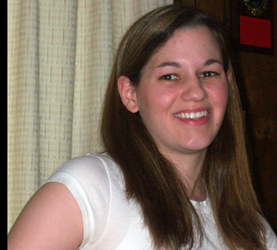
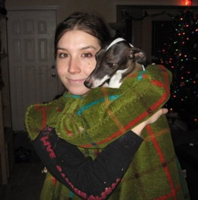 She loved all things technical and mechanical with her older brother Ian and fashion and decorating days with her older sister Genevieve. She loved Gothic country art, the workings of the human body, video games, driving and her new tattoo machine. She loved swimming and surfing. She loved all things living and loved her dog Timpleton and her parrot Thermopolis. She had a strong heart and soul, was an independent and progressive thinker, open minded and a will power like no one else. Her favorite place to go was Barnes and Noble.
She loved all things technical and mechanical with her older brother Ian and fashion and decorating days with her older sister Genevieve. She loved Gothic country art, the workings of the human body, video games, driving and her new tattoo machine. She loved swimming and surfing. She loved all things living and loved her dog Timpleton and her parrot Thermopolis. She had a strong heart and soul, was an independent and progressive thinker, open minded and a will power like no one else. Her favorite place to go was Barnes and Noble.
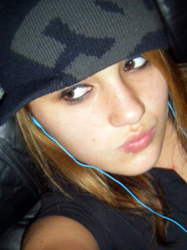 Vivianna Satterfield was 15 years old! Vivi was the type of young lady that put other people in front of herself. She would always say "Peace and Love".
Vivianna Satterfield was 15 years old! Vivi was the type of young lady that put other people in front of herself. She would always say "Peace and Love".
 Kelli Laine Lewis is my only daughter. Kelli died when she was 18 after attending a party hosted by 3 adults who offered a $5.00 entry fee to come and drink all you wanted. A pretty tempting offer for teens not old enough to buy alcohol.
Kelli Laine Lewis is my only daughter. Kelli died when she was 18 after attending a party hosted by 3 adults who offered a $5.00 entry fee to come and drink all you wanted. A pretty tempting offer for teens not old enough to buy alcohol.
 Growing up – she had it all. She was smart and witty - she could come up with a jovial comeback in almost any conversation or situation. She wShe was smart and witty - she could come up with a jovial comeback in almost any conversation or situation. She was always photographing everything and always laughing. She had an infectious laugh, loud and squeaky, but incredibly endearing. Taylor was a huge fan of Tyler Perry’s Madea. She owned every play and knew every word to every gospel song in the plays. She would sing them at the top of her lungs to anyone that would listen. as always photographing everything and always laughing. She had an infectious laugh, loud and squeaky, but incredibly endearing.
Growing up – she had it all. She was smart and witty - she could come up with a jovial comeback in almost any conversation or situation. She wShe was smart and witty - she could come up with a jovial comeback in almost any conversation or situation. She was always photographing everything and always laughing. She had an infectious laugh, loud and squeaky, but incredibly endearing. Taylor was a huge fan of Tyler Perry’s Madea. She owned every play and knew every word to every gospel song in the plays. She would sing them at the top of her lungs to anyone that would listen. as always photographing everything and always laughing. She had an infectious laugh, loud and squeaky, but incredibly endearing.
 He went out THE FIRST TIME to celebrate being "LEGAL" with a creep he considered a friend (even though we warned him this guy was not a true friend). My son did not drive so he was picked up about ten thirty. Even when it was obvious my son was having difficulties this creep brought him to his own house , which is 4 houses away for a few hours, and dropped him off here at home in the middle of the night WITHOUT KNOCKING OR CALLING OR WAKING US UP. We found Ben in his bed the next morning when we tried to wake him.
He went out THE FIRST TIME to celebrate being "LEGAL" with a creep he considered a friend (even though we warned him this guy was not a true friend). My son did not drive so he was picked up about ten thirty. Even when it was obvious my son was having difficulties this creep brought him to his own house , which is 4 houses away for a few hours, and dropped him off here at home in the middle of the night WITHOUT KNOCKING OR CALLING OR WAKING US UP. We found Ben in his bed the next morning when we tried to wake him.
Click here to Meet
Our Parents
 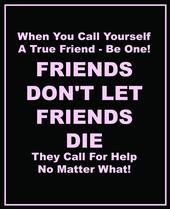 Click above to visit Our Sites |
Click on the name below to see full story
|
News Paper and Video Articles |
Find your State's Statutes |
Failure To Render Aid |
Events |
|
Information On Grief
The Compassionate FriendsClick above to visit their web site |
Get the Flash Player to see this player.
"Reflections of Love, Visions of Hope"

"Reflections of Love, Visions of Hope" is the theme of
The Compassionate Friends 33rd National Conference which will be
held in Arlington Virginia July 2-4, 2010. The event will be
held at the Hyatt Regency Crystal City promising a beautiful
venue for the 33rd TCF National Conference. Independence Day
will not only feature our Walk to Remember, but will include a
world-class display of fireworks over the National Mall, visible
from Arlington.
********************************************************
Willowgreen
Resources For Healing, For Hope, For Tending That Which Is Sacred
********************************************************
Send a Ecard
********************************************************
Willowgreen Video Meditation
********************************************************
|
MY GRIEF WISH LIST 1. I wish you would not be afraid to speak my child's name. They lived and were important and I need to hear their name. 2. If I cry or get emotional if we talk about my child, I wish you knew that it isn't because you have hurt me; the fact they have died has caused my tears. You have allowed me to cry and I thank you. Crying is emotional outbursts of healing. 3. I wish you wouldn't let my child die again by removing from your home his/her pictures, artwork or other remembrances. 4. I will have emotional highs and lows, ups and downs. I wish you wouldn't think that if I have a good day my grief is all over, or that I have a bad day, I need psychiatric counseling. 5. I wish you knew that the death of a child is different from other losses and must be viewed separately. It is the ultimate tragedy and I wish you wouldn't compare it to your loss of a parent, spouse or a pet. 6. Being a bereaved person is not contagious, so I wish you wouldn't stay away from me. 7. I wish you knew all the crazy grief reactions that I am having are in fact very normal. Depression, anger, frustration and hopelessness and the questioning of values and beliefs are to be expected following a death. 8. I wish you wouldn't expect my grief to be over in six months. The first few years are going to be exceedingly traumatic for us. As with alcoholics, I will never be "cured" or "formerly bereaved", but forever be "recovering" from my bereavement. 9. I wish you understood the physical reaction to grief. I may gain weight or lose weight, sleep all the time or not at all, develop a lot of illnesses and be accident prone, all of which are related to my grief. 10. Our child's birthday, the anniversary of his/her death and holidays are terrible times for us. I wish you could tell us that you are thinking about them on these days and if we get quiet and withdrawn, just know that we are thinking about them and don't try to coerce us into being cheerful. 11. I wish you wouldn't offer to take me out for a drink, or to a party, this is just a temporary crutch and the only way I can get through this grief is to experience it. I have hurt before and I can heal. 12. I wish you understood that grief changes people. I am not the same person I was before my child died and I never will be that person again. If you keep waiting for me to get back to "my old self", you will stay frustrated. I am a new creature with new thoughts, dreams, aspirations, values and beliefs. Please try to get to know the new me; maybe you will still like me. -The Compassionate Friends- |
********************************************************
Anniversary GriefDate updated: September 08, 2006 Content provided by MayoClinic.com When a loved one dies, you often don't experience the grief of loss just once. You're likely to relive your grief on the anniversary of your loved one's death and on special days throughout the year, such as a birthday or religious holiday. Even memorial celebrations for strangers who died in catastrophes, conflicts or disasters can trigger the familiar pain and sadness of a loss. The return of these feelings of grief is not necessarily a setback in the grieving process. It's a reflection that the lives of others were important to you, and that you grieve their loss. Learning more about what to expect and how to cope with reminders of your loss can help make the grieving process a healthy, healing one. When grief returnsThe memories and emotions rekindled through reminders are called anniversary reactions. These reactions, which can last for days or weeks at a time, often give rise to a host of emotions and physical problems. You may experience sadness, loneliness, anger, anxiety, nightmares and lack of interest in activities, just as you did when you first grieved. You may weep unexpectedly or replay images or scenes related to your loved one. You might have trouble eating or sleeping, or develop headaches, stomach pain or intestinal upset. Anniversary reactions can also evoke powerful emotional memories - experiences in which you vividly recall the feelings and events surrounding the death. You might remember in great detail where you were and what you were doing, for instance. Common triggers of griefSome reminders are almost inevitable, especially during the first year after a death. That's when you'll face a lot of "firsts" - the first holiday after your sister died, for example. The first Mother's Day after losing your mom. The first anniversary of a national tragedy. Your reactions to these firsts might be intense, but you'll probably find it easier to cope with subsequent anniversary dates as years pass. Common reminders that may trigger your grief also include: Weddings and wedding anniversaries Family gatherings or celebrations Childhood milestones, including the first day of school, prom, homecoming and other child-oriented days, such as Halloween Special days - when you met, when you became engaged, when you last saw your loved one alive, when you took a big trip together, for example Reminders aren't just tied to the calendar, though. They can be anywhere - in sights, sounds and smells, in the news or on television programs. And they can ambush you, suddenly flooding you with emotions when you drive by the restaurant your wife loved or when you hear a song your friend liked so much. Even years after a loss you may continue to feel sadness and pain when you're confronted with such reminders. Although some people think grieving should last a year or less, grieve at your own pace. When grief becomes depression or PTSDOn the other hand, protracted or intense grief can be unhealthy. If you find that your feelings interfere with your ability to function in your daily life - you miss work deadlines, have conflicts with family or friends, neglect your appearance or stop socializing, for instance - you may no longer be simply grieving. Your grief may have progressed into depression or post-traumatic stress disorder (PTSD). Depression Symptoms of depression include self-criticism, feelings of guilt about the loss and even thoughts of suicide. If you're experiencing any of these symptoms, it's time to get treatment. Start by visiting your primary care doctor to discuss treatment options, such as psychotherapy or medication. PTSD In some cases, anniversary reactions can trigger PTSD. This is more likely to occur when you have recurrent distressful memories of something that happened to you personally, such as a mugging or a car accident. Signs and symptoms of post-traumatic stress include fear and anxiety, a lack of focus, sadness, changes in sleeping or eating habits, bouts of crying, or recurrent thoughts or nightmares about the event. If you have these disturbing feelings for more than a month, if they're severe or if you feel you're having trouble coping, see your doctor or a mental health professional. Prepare for episodes of griefBe prepared for the occasional return of feelings of grief. Knowing that you're likely to experience anniversary reactions can help you understand them and even turn them into opportunities for healing. Some people create new holiday traditions or ways of honoring loved ones who have died. You may find that symbolizing or expressing grief helps you cope better than denying or avoiding it. Attending public memorials and ceremonies that mark the anniversary of tragedies, disasters and other events that claimed lives also can help. These kinds of ceremonies can help draw people together and allow you to share feelings with others who feel similarly. You might find yourself dreading upcoming special days, fearful of being overwhelmed by painful memories and emotions. In some cases, the anticipation can be worse than the reality. In fact, you may find that you work through some of your grief as you cope with the stress and anxiety of approaching reminders. Tips to cope and healHere are several ways to cope with reminders of loss and to continue the healing process: Be reassured that anniversary reactions are normal and that their intensity will diminish in time. Reminisce about your relationship with the person who died. Try to focus on the good things about the relationship and the time you had together, rather than the loss. Plan a distraction, such as a weekend away or a visit with friends or relatives. Start a new tradition in your loved one's memory. For example, make a donation to a charitable organization in the person's name on birthdays or holidays. If you find yourself becoming more anxious, sad or distressed by news coverage, limit your exposure to news reports about tragic events. Draw family members and friends close to you, rather than avoiding them. Find someone who will encourage you to talk about your loss. Stay connected to your usual support systems, such as spiritual leaders and social groups. Allow yourself to feel sadness and a sense of loss. Conversely, allow yourself to also experience joy and happiness as you celebrate special times. In fact, you might find yourself both laughing and crying.
|
********************************************************
|
Go ahead and mention my child,--------------------the one that died you know. Don't worry about hurting me,-------------------------the depth of my pain don't show. Don't worry about making me cry,-------------------I'm all ready crying inside. Help me to heal by releasing,-------------------------the tears that I try to hide. I'm hurt when you just keep silent,------------------Pretending she didn't exist. I'd rather you mention my child,----------------------knowing that she has been missed. You ask me how I am doing?-------------------------I say ""pretty good"" or "" fine"" But healing is something ongoing.------------------I feel it will take a lifetime.
With deep thoughts and affection ~Argia |
********************************************************
Helpful Personal Links
Signs of an overdose
Resources For Victims
On Grief
Random Letters
Videos
Click on pictures

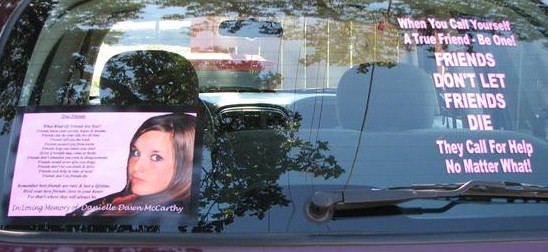
Tee Shirts
Stickers Too


Tee Shirts
Stickers Too
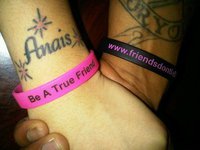
Made by Danielle McCarthy's Parents
We Are the Broken
Our lives have changed Our children taken, We're filled with pain.
To show you care. At first you support us Then you're not there. We see you out You see us too You avoid us That hurts too. What did we do For you to leave? Our children died Now we grieve. We put on masks When you are near We scream inside But you don't hear. You tell us, "Move on. Get on with your life." We simply nod Your words piercing like a knife. We long to say our child's name The one you want unspoken So you don't call because you're
afraid Of we, who are the broken. By: Kim Lasater
|


